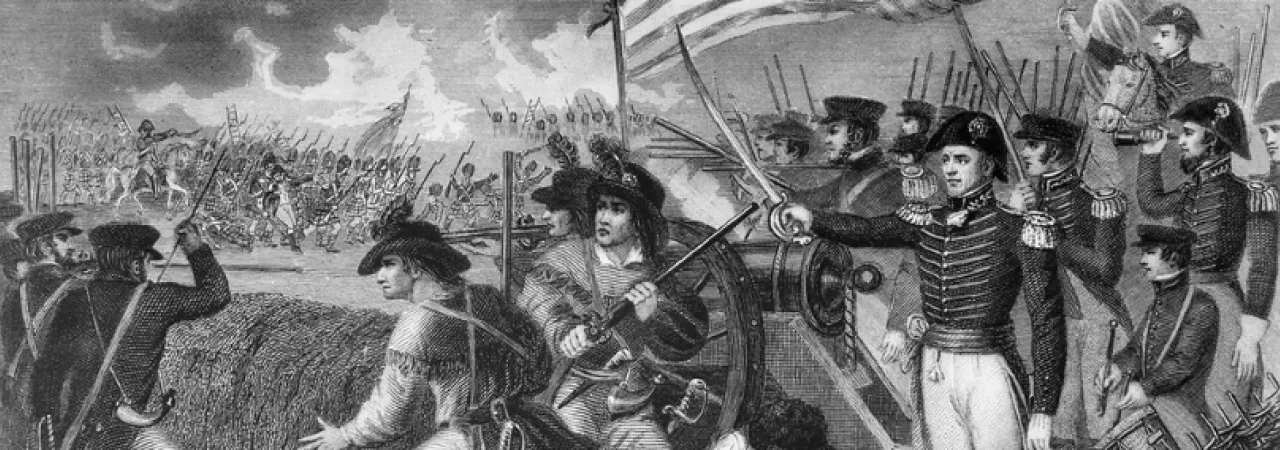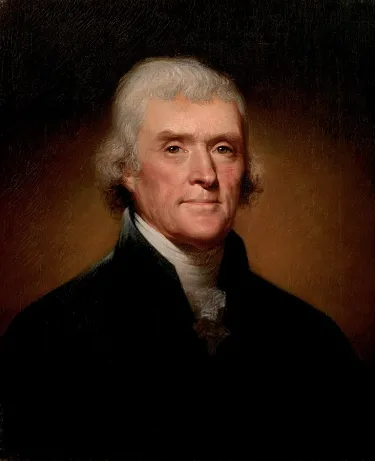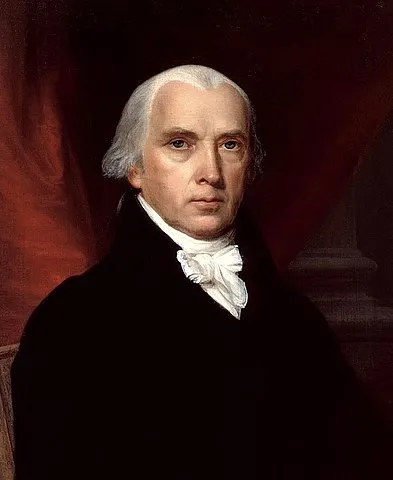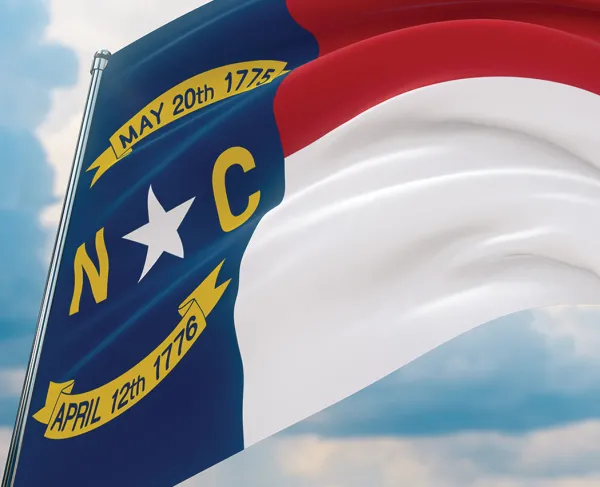Early American Stances on the Size and Role of the Military and its Effects On the War of 1812

On June 18, 1812, as the United States formally declared war on Great Britain, many Americans found themselves abundantly optimistic and hopeful that Canada would quickly be captured and victory soon secured. As the former President Thomas Jefferson remarked in a letter, “The acquisition of Canada this year … will be a mere matter of marching.” Indeed, with an overwhelming population compared to Canada and with Great Britain distracted fighting in the Napoleonic Wars, the United States seemed poised to overtake Canada by the end of the year. However, as the opening campaigns of the war illustrated, the dilapidated, decayed, and diminutive state of the United States military soon hindered such advantages. Contributing to the chaotic and unprepared condition of the United States’ military at the onset of war was the lack of unified consensus on the role and size of the military in the new republic.

For decades prior to the outbreak of war in 1812, the United States military had seen its strength ebb and flow with the changing policies of new presidential administrations. Initially, following the election of John Adams in 1796, the fate of the national military as a valuable and formidable force seemed secured. Being a Federalist with the interests in a strong national government, President Adams was by nature in favor of a large and funded military. The Federalist view of the military, shared by President Adams, called for there to be a strong standing army and navy, modeled after America’s European counterparts, which could not only deter possible war but put the nation in a prepared position in case an unavoidable war was to break out. With the threat of looming war with France during his presidency, it would not take long for Adams to put these ideals into practice. Under Adams’ leadership, the peacetime army was drastically bolstered from a mere 840 men to a theoretical 10,000-man limit, although it would only swell to 5,400 under him, consisting of 12 infantry regiments, and 6 cavalry companies. In addition to the increased size of the regular army, Adams authorized the ability to summon 80,000 militiamen in case of an attack. In terms of American maritime capabilities, Adams built up the Navy to a size of 13 active frigates and 6 ships-of-the-line under construction while simultaneously pouring money into coastal defenses, as well as overseeing the re-birth of the Marine Corps. This buildup of arms served the United States invaluably in the unofficial Quasi-War (1798-1801) against the French, putting an end to the French harassment of American shipping in the Atlantic. Despite the success of the Federalist policies of Adams, the taxes and seemingly elitist mentality caused by a larger permanent military would pave the way for the election of Democratic-Republicans, such as Presidents Thomas Jefferson and James Madison.
While the previous administration had made great strides in preparing the nation’s defenses by investing in a strong military, after his election in 1800, Jefferson immediately began work undermining these advances of his predecessor. In stark contrast to Adams’ Federalist stance on the size of the military, Jefferson, as a staunch Democratic-Republican, fervently opposed the buildup of a national military. Democratic-Republicans, such as Jefferson, were strongly opposed to and fearful of a large federal government and an accompanying strong military, which they believed to be subversive to the democratic institutions that on which the nation was founded. In the eyes of Jefferson and his colleagues, a strong national military was inclined to become corrupt and rule tyrannically over dissenting citizens as the weapon of an overbearing central government. As Jefferson argued, "Standing armies [are] inconsistent with [a people's] freedom” and “completely adverse” to the “spirit of this country.” Instead of relying on the potentially despotic and overgrown institution of a standing military, Jefferson instead favored the use of militia. Looking to the city-states of Ancient Greece and Rome for example, Jefferson longed for an idealized agrarian society, where “every citizen” is obliged “to be a soldier” in militia service.
Shortly after taking office, Jefferson introduced sweeping reforms of the armed forces consistent with such ideals. Under the Military Peace Establishment Act, Jefferson authorized the downsizing of the army from 5,400 men to 3,300 men consisting of only two regiments of infantry, one artillery regiment, and a minuscule engineer corps. Perhaps the most dramatic consequence of these cuts was felt by the officer corps of the army. Up to one-third of the officer corps was removed, the majority being experienced and devoted Federalists, in an attempt to remove partisanship from the institution. However, these empty spots were soon filled and given as gifts to Democratic-Republican political appointees who had little interest, or knowledge, in military affairs. The consequences of such political appointments can little be understated in the effects they would have upon the War of 1812. These “imbeciles and ignoramuses,” as Winfield Scott described them, would lead to such a level of incompetence and demoralization that the army would not be able to recover from until late in the War of 1812. In addition to decreasing the size of the army and reforming its officer corps, Jefferson drastically decreased the size of the navy. Believing the navy to be overly prone to drawing the nation into conflict, Jefferson cut the number of active frigates to 7 as well as halting construction on the congressionally approved ships-of-the-line. Of the first presidents of the United States, Jefferson’s tenure and anti-standing military policies would have the most lasting implications on the United States’ preparedness to go to war in 1812.

Following his election in 1808, President James Madison continued Jefferson’s anti-military sentiments in his administration. Having served as Jefferson’s Secretary of State, as well as being a fellow Democratic-Republican, Madison maintained many of the inclinations of his predecessor in not wishing to expand or strengthen the military. As it had become under Jefferson’s leadership, under Madison, the military, especially the army, continued to remain neglected and festered with incompetent officers and leadership. However, as 1812 approached, with war looming on the horizon, Madison soon realized that his ideals for a small government lay in conflict with his desire for war. As Madison voiced in an address to Congress, because of Britain’s “war on our lawful commerce… Congress will feel the duty of putting the United States into an armor and an attitude demanded by the crisis.” This call for wartime preparedness by the president was embraced by Congress, leading to the most sizable increase in the strength of the military since the Quasi-war. Such legislation included measures to fill out the ranks of the army, raise more volunteers, and purchase arms for the army and navy. Understanding the pragmatism needed for the impending war, Madison had transcended his anti-military beliefs in order to bolster the armed forces.
While President Madison had made great strides in preparing the military for war, his actions were arguably too late to have an effect on the condition of the military by the outbreak of war. The army, only 7,000 strong and still plagued by incompetence in the officer corps and well-understrength, faced terrible defeats in the opening engagements of the war, while the navy, too small to have any significant effect, was confined to relatively inconsequential duels. Despite these initial setbacks, as the war would continue, young, competent officers would rise to the challenge and transform the understrength military into a well-disciplined and professional force. In addition to the ascendency of a younger, more aggressive, class of officers restoring the dignity to the military, Madison would continue in his realization of the importance of a standing military, increasing the regulation army size to 35,000 by the end of the war.





